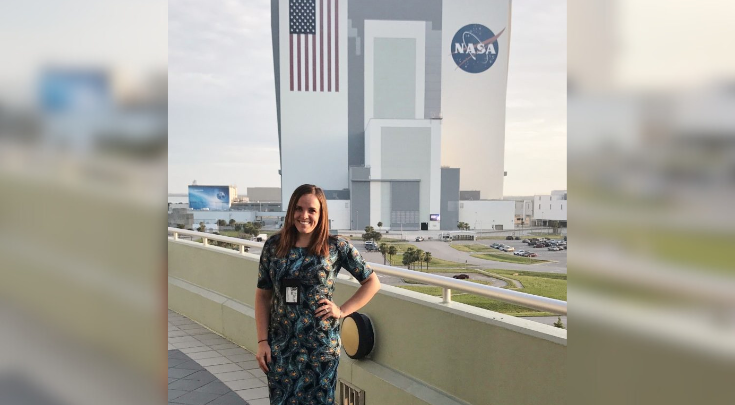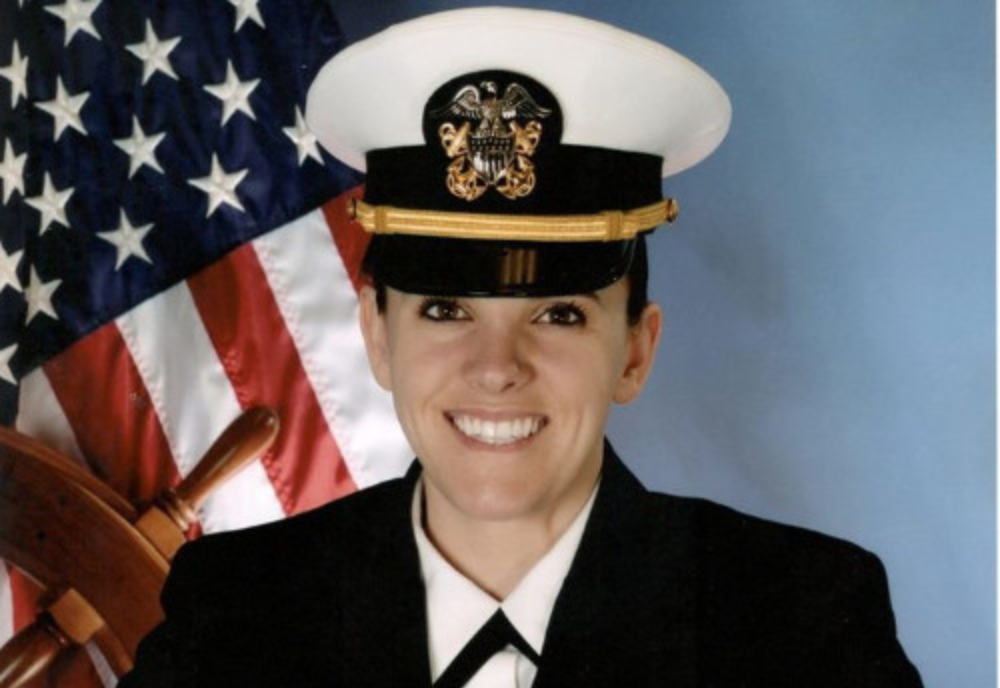USF College of Public Health (COPH) alumnus Katelyn Glisson grew up on a beef ranch in a small town in Minnesota. Her journey into higher education and public health began in a different field.
"I originally started in nursing," Glisson said, "but during my education, I realized I preferred the prevention side of medicine, so I switched my degree to environmental public health."
This decision, she said set the stage for a career focused on preemptive health measures.
“The most interesting thing about public health is the fact that we can affect people's health before they get sick or injured,” she said. “I also enjoy learning about the history of public health and how much it has shaped our world. Even the Bible has multiple rules which were put in place to protect public health.”
After graduating in 2013 with a bachelor of science in environmental public health from the University of Wisconsin–Eau Claire, Glisson looked to further her education.
“As a Minnesotan, I was looking to move somewhere that was a little warmer. I chose USF because they are accredited by the Accreditation Board for Engineering and Technology and because they are a National Institute for Occupational Safety and Health Educational Resource(NIOSH) Center.”
As a student at the COPH, Glisson worked with professor Dr. Thomas Bernard to test the accuracy and precision of the U.S. Army Heat Stress Decision Aid.
“This work was recently used to create heat stress applications for the entire U.S. Department of Defense,” she said.
Additionally, the late Dr. Steve Mlynarek played a pivotal role in her student development.
"He pushed me to develop my critical thinking skills and I would not be the scientist I am today without his guidance," Glisson said.
In 2014, she worked as a safety manager at a metal fabrication plant where she oversaw the health and safety of workers in hazardous environments. This role was a precursor to her position two years later as an environmental health intern at NASA Kennedy Space Center.

As a COPH graduate student, Katelynn Glisson worked as an environmental health intern at NASA Kennedy Space Center. (Photo courtesy of Glisson)
Glisson received a master of science in public health specializing in industrial hygiene from the COPH in 2017.
As her first professional experience after graduation, Glisson served as an industrial hygiene officer with the U.S. Navy. Her naval hospital-based role included posts in Japan and Jacksonville, Fla.
"The Navy has a very unique industrial environment," Glisson said, describing the challenges and excitement of the job. As the assistant safety officer onboard the USS George H. W. Bush, she managed safety programs for more than 3,000 sailors.
"Working around the clock on the ship in the middle of the ocean is much different than going to a job for eight hours and then going home. I love the fact that I am always able to find something new and exciting to get involved in," Glisson said.
"Every day I use the skills that were taught to me at the COPH to take ventilation measurements, complete indoor air quality assessments, recommend controls for hazards and more," she said.
Her proudest moment came when she participated in a joint exercise with the Defense Threat Reduction Agency, learning that her thesis work at the COPH had influenced new equipment being used.
"Currently, I am working with the Navy and Army Public Health Centers to sample blast overpressure, which is a fairly new concept," she said, “I hope to continue researching these new topics and creating the best controls to protect our warfighters.”
Looking ahead, Glisson said she plans to continue her career in the Navy, focusing on cutting-edge research.
Fast Five:
What did you dream of becoming when you were young?
A doctor
Where would we find you on the weekend?
In my garden
What is the last book you read?
“A Good Girls Guide to Murder,” by Holly Jackson
What superpower would you like to have?
Teleportation
What’s your all-time favorite movie?
“A Cinderella Story”
